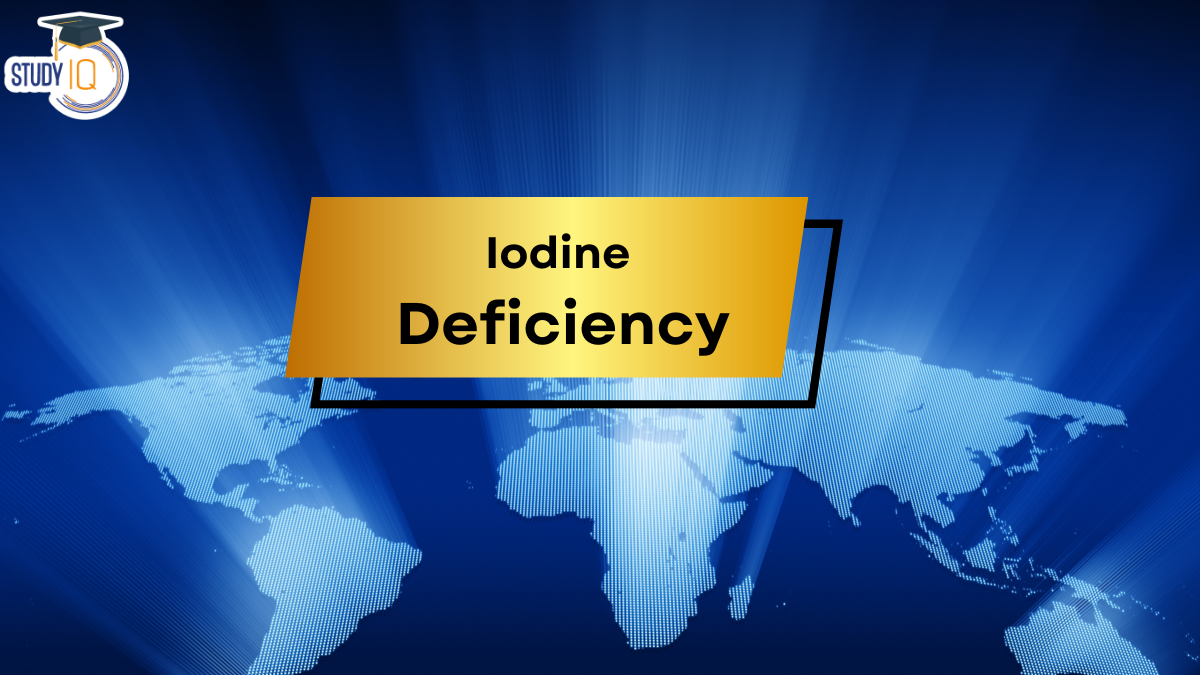About Iodine
- Iodine is a non-metallic, lustrous, solid element & is the least reactive halogen.
- Iodine is an essential nutrient for the human body, especially for the brain, nervous system, and thyroid gland.
- It is a component of thyroxine, a hormone that controls the body’s rate of development.
- WHO recommends a daily intake of 150 micrograms of iodine for adults and higher amounts for pregnant and lactating women.
- Sources: Seafood, eggs, iodized salt, milk and milk products
- Other Uses of Iodine:
- Antiseptic: Iodine solutions are used for disinfecting wounds and surgical sites.
- Imaging: Radioactive iodine is used in medical imaging and treatments for thyroid disorders.
- Fertiliser Production: To enhance plant growth and health.
- Iodine-131 is a radioactive isotope that can be used in radiation therapy and as a tracer.
Health Effects of Iodine Deficiency
- Goitre: Enlargement of the thyroid gland due to insufficient hormone production.
- Hypothyroidism: A condition where the thyroid gland can’t make enough thyroid hormones.
- Mental and neuromotor retardation: Iodine deficiency can cause cognitive impairments and mental disabilities, especially in children born to mothers who were iodine deficient during pregnancy or while nursing.
- Thyroid or other cancers: Chronic iodine deficiency increases the risk of thyroid cancer.


 Aircraft Accident Investigation Bureau (...
Aircraft Accident Investigation Bureau (...
 TNPSC Group 2 Eligibility Criteria, Age ...
TNPSC Group 2 Eligibility Criteria, Age ...
 Rohith Vemula Act: Karnataka’s Groundb...
Rohith Vemula Act: Karnataka’s Groundb...





















